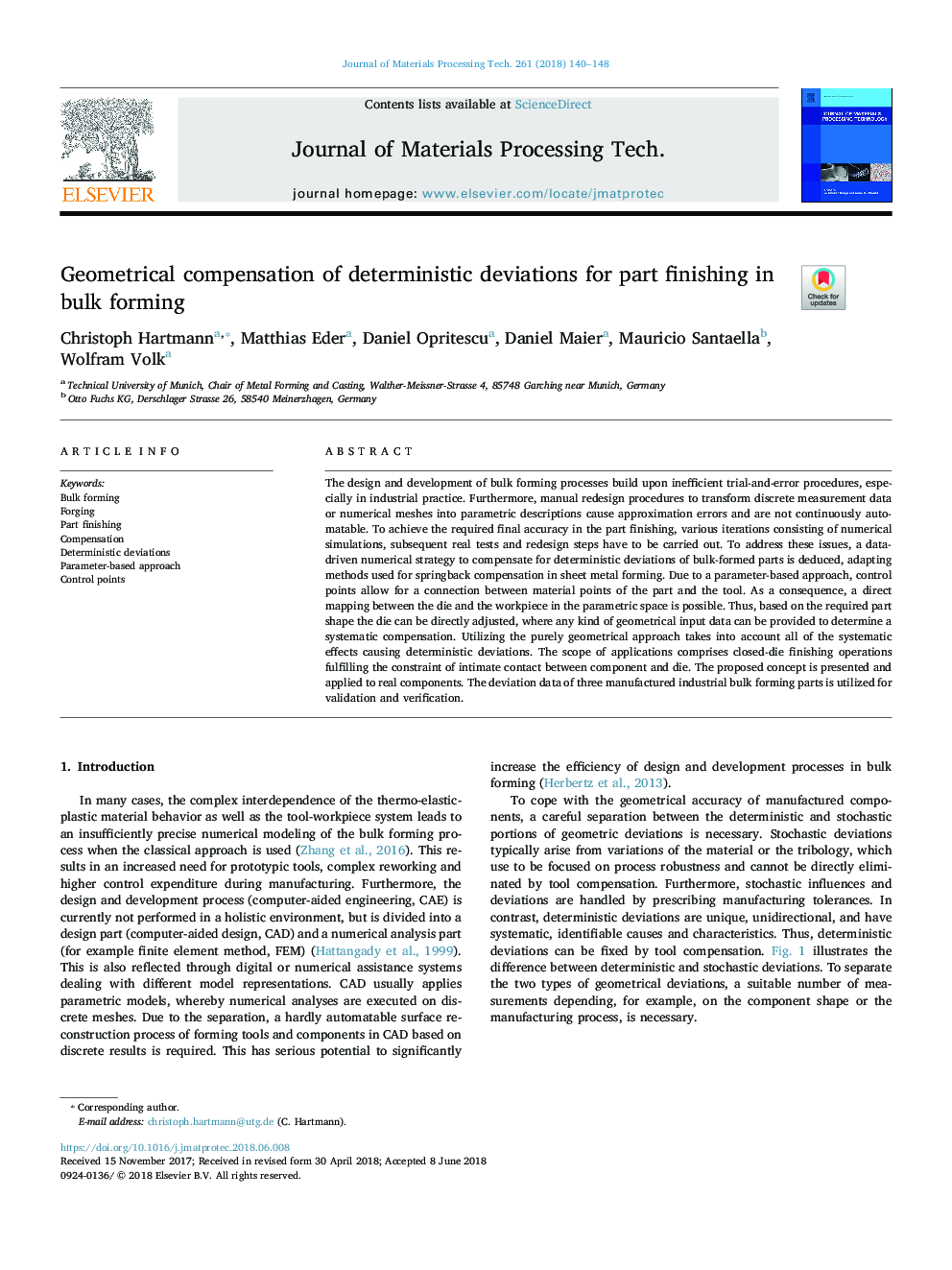| Article ID | Journal | Published Year | Pages | File Type |
|---|---|---|---|---|
| 7176241 | Journal of Materials Processing Technology | 2018 | 9 Pages |
Abstract
The design and development of bulk forming processes build upon inefficient trial-and-error procedures, especially in industrial practice. Furthermore, manual redesign procedures to transform discrete measurement data or numerical meshes into parametric descriptions cause approximation errors and are not continuously automatable. To achieve the required final accuracy in the part finishing, various iterations consisting of numerical simulations, subsequent real tests and redesign steps have to be carried out. To address these issues, a data-driven numerical strategy to compensate for deterministic deviations of bulk-formed parts is deduced, adapting methods used for springback compensation in sheet metal forming. Due to a parameter-based approach, control points allow for a connection between material points of the part and the tool. As a consequence, a direct mapping between the die and the workpiece in the parametric space is possible. Thus, based on the required part shape the die can be directly adjusted, where any kind of geometrical input data can be provided to determine a systematic compensation. Utilizing the purely geometrical approach takes into account all of the systematic effects causing deterministic deviations. The scope of applications comprises closed-die finishing operations fulfilling the constraint of intimate contact between component and die. The proposed concept is presented and applied to real components. The deviation data of three manufactured industrial bulk forming parts is utilized for validation and verification.
Related Topics
Physical Sciences and Engineering
Engineering
Industrial and Manufacturing Engineering
Authors
Christoph Hartmann, Matthias Eder, Daniel Opritescu, Daniel Maier, Mauricio Santaella, Wolfram Volk,
